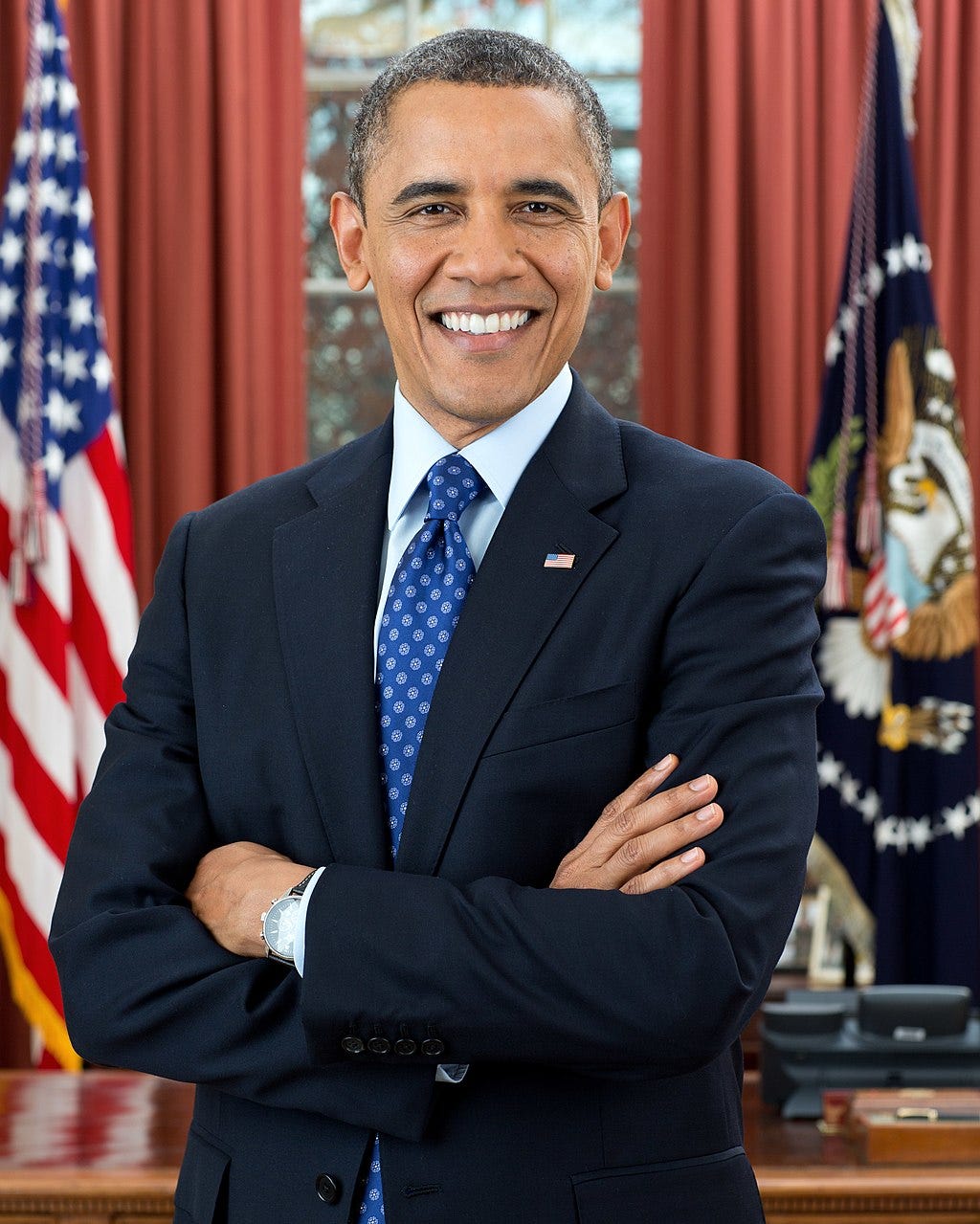The Obama/Trump Voter And Structural Racism
Racism isn't really a personal feeling. It's more like a political coalition.
Post 2016, the punditry was obsessed with the Obama/Trump voter—people who cast a ballot for Obama and for Trump. The existence of these voters was supposed to prove that Trump’s coalition couldn’t be racist, but was instead fueled by authentic economic populism and a rage at the neoliberal establishment.
Wonkette writer Stephen Robinson (one of my favorite people to chat with on twitter) questioned this logic this week. “I think that there *were* racists in the rust belt who voted for Obama in 2008/2012,” he said.
Robinson is certainly right; many racists did vote for Obama. Andrew Sullivan, for example, has a long history of racist animus; there’s little doubt that he believes that Black people are intellectually inferior to whites as a group. But he was a huge fan of Obama’s, and surely voted for him as often as he could.
So, how does that work? How can a racist person vote for a Black man for president?
I think there are a couple of answers.
The first is just that people are complicated, which means among other things that someone may be racist and also very opposed to the Iraq war (like Andrew Sullivan—and probably a fair number of other Obama voters.) Or someone may be racist and really like Obama’s message of post-racial healing. If Obama is president, then how can any Black person complain about an unjust prison system, or the racial wealth gap, or a racist educational system? For Sullivan (and not just Sullivan), Obama could be framed as a kind of triumph of color-blind racism. Equality has been achieved! It’s time to gut the social safety net and put more police in miliary gear on the streets!
Ultimately, though, I think the personal rationalizations of racist Obama voters are of secondary importance. The main thing to understand about Obama/Trump voters is that racism isn’t really about what’s in your heart. Racism is a structure. It’s a system. And in many respects it’s a political coalition.
When we talk about race as a structure, we’re often talking about how people without open animus can participate in and advance racist systems. For example, an affluent white parent might move from the city to a suburb to get a supposedly better education for their child. That choice isn’t necessarily motivated by fear or dislike of Black people. But it reinforces systems of income and racial segregation which have stripped resources from inner cities and result in huge disproportions in educational resources available to white and Black students.
Or you can look at Black mayors like Lori Lightfoot and Eric Adams who cosign racist police power because they think it will buttress their own positions . That’s not really about their personal feelings about Black people; it’s about racism as a system.
Racism as a structure can lead not racist people to participate in and advance racist institutions. But by the same token, there are times when people who do hold racist beliefs may for various reasons end up withdrawing support from racist institutions or coalitions, or working against them in various ways.
Some women who hold racist beliefs, for example, might end up voting against the current white identity party because it has become so rabidly opposed to reproductive rights. Or again, if the president of the white identity party loses a major war, he might become extremely unpopular, pushing people who approve of racist policies to vote for someone—anyone—else.
Racism is less about what you feel, and more about what you do—or more precisely, more about how you interact with structures and coalitions which reproduce and advance racism, or which do the opposite. Rather than looking at Obama/Trump voters and saying, “racists voted for Obama” or “Trump voters weren’t racist”, it’s more useful I think to say, “Some voters chose to be less racist and vote for Obama, and then chose to be more racist and vote for Trump.”
And in fact in Sullivan, you can see that voting for Obama, and being part of the Obama coalition, briefly pushed him to be less hateful. He talked a lot less about race science between 2008-2016 than he did before or after, and his public persona was generally less poisonous. His decision to belong to certain coalitions led him to be a better person in some respects. And then a worse one again.
Image: Joe Biden, a racist opponent of integration, voted for Obama twice.
People often argue that you can’t call Republicans racist because doing so means that you’ve given up on those voters forever. But the thing is Republicans don’t have to keep being racist. They can choose to stop being part of that coalition for really any reason, and doing so will in most cases make them ever so slightly less racist than they were before. We can always choose a better path. And when we do, that better path also chooses us.




Hi Noah -- would love to have a conversation with you about making anti-racism more accessible. Is there a way we could connect more directly? Thanks!